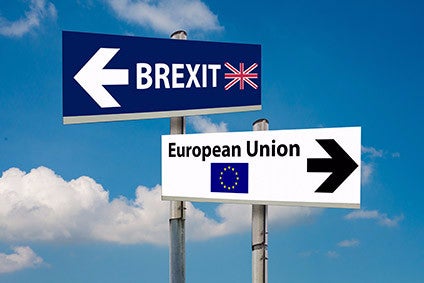
British households would have to pay an average of GBP260 (US$343) more a year for food, clothing and transport if the government fails to strike a post-Brexit free-trade deal with the European Union, a research paper showed yesterday (17 October).
The UK government has said it would impose World Trade Organisation tariffs on goods imported from the EU if it leaves the bloc without a settlement, a probability some economists put at roughly 25%, Reuters reported, quoting research from the University of Sussex and the Resolution Foundation.

Discover B2B Marketing That Performs
Combine business intelligence and editorial excellence to reach engaged professionals across 36 leading media platforms.
That would mean tariffs of up to 45% on some dairy imports while some meat products would face a 37% charge, according to the researchers.
The findings come as UK inflation accelerated to 3% in September, the fastest pace in five years, which means UK consumers are already up against rising living costs even before any post-Brexit deal is made with the EU.
Talks between UK and EU officials to try and hammer out a deal before the March 2019 deadline have essentially stalled. Eyes will be on the outcome of a two-day meeting in Brussels starting tomorrow for signs of any progress, although industry watchers are not expecting much.
The research suggested the GBP260 annual rise in outlays for a typical middle-income household was equivalent to an extra 0.9%. The poorest 10% would see their bills increase 1%.

US Tariffs are shifting - will you react or anticipate?
Don’t let policy changes catch you off guard. Stay proactive with real-time data and expert analysis.
By GlobalData“A ‘no-deal’ scenario … will increase the cost of essential goods, such as food and clothes, which will impact most adversely on those households who already struggle to get food on the table,” Reuters reported Sussex researcher Ilona Serwicka as saying.
Industries such as meat processing that are concentrated in rural areas would suffer in the face of cheap imports, and scrapping tariffs immediately would make it harder to get tariff-free access for British exports in the future, the research showed.
The UK government has outlined measures to be taken in the event of a no-deal scenario.





